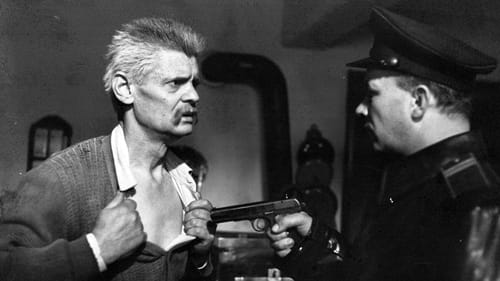
Screenplay
Un tranquilo hombre vuelve al salvaje y aislado paisaje del Delta del Danubio. Es un laberinto de canales, pequeñas islas y vegetación demasiado crecida, donde los aldeanos viven ajenos al mundo exterior. Al joven hombre, que ha vivido fuera desde su infancia, le es presentada una hermana que nunca supo haber tenido. Es delicada y tímida, pero resuelta cuando decide unirse a él de camino a una cabaña en la orilla. Juntos construirán una casa sobre pilares en medio del río, lejos de cualquier otra persona. Un día, invitarán a los aldeanos a compartir una comida con ellos, pero resultará evidente que los habitantes locales no aceptan su relación "antinatural".

Writer
Johanna es una adaptación moderna de la vida de Juana de Arco. Johanna sufre un accidente y es resucitada por los médicos. Como resultado ella entrega su vida a mejorar la de otros pacientes, aunque acabará enfureciendo al personal del hospital. A veces aparece como ángel, otras como demonio, pero siempre representa el milagro de la naturaleza.

Writer
Como consecuencia de un cataclismo que ningún sismógrafo ha podido registrar, se abre una brecha entre la frontera de España y Francia y la Península Ibérica va flotando a la deriva en el Océano Atlántico. Ahora es una verdadera balsa de piedra. El impacto en la escena geopolítica es inmenso cuando los poderes Norteamericanos ven la posibilidad de adquirir la nueva extensión de tierra con sus pobladores que se ha desprendido de Europa. Solo el Peñón de Gibraltar permanece en su lugar. Los españoles y portugueses sacados abruptamente de su rutina diaria, abandonan sus casas para escapar de los amenazadores peligros de la costa y van incesantemente vagabundeando por los caminos del interior. Y todavía se desorientan mas cuando la balsa empieza a girar sobre su eje de tal modo que el sol amanece por lo que era el Oeste. (FILMAFFINITY)

Thanks
A young white woman leaving a nightclub alone drops her cigarette lighter on the street. When a young black man follows her and attempts to return it, she panics and assumes he is attacking her. The ensuing chase threatens to erupt into violence.

Writer
An old man is kidnapped. His interrogation uncovers the biography of a mass murderer: The 80 years old man was a SS leader and responsible for the killing of thousands of people in Russia. He also "invented" an evil technique of eliminating political prisoners: the manipulated suicide. Thomas Harlan reconstructs the history of a bureaucratic murderer, he also develops a direct connection between the Nationalsocialism and the treatment of prisoners of the RAF terrorists in the Stuttgart isolation prison. Robert Kramer filmed the shooting of Harlan's Wundkanal: Notre Nazi documents a social experiment in which the children of Nazis and of victims meet a real culprit. The reality seems to be stronger that the fiction in Harlan's film. (Edition Filmmuseum)

Script Editor
Savanyú and his friend work at a plant. After the monotonous shifts they engage in the pleasures of the afternoon and the night, i.e. parties and concerts. Savanyú dates Juli, they are already engaged. The young men live as sub-tenants, the young women in workers' hostels. None of these places are suited for spending time together. They are in need of an apartment. Out of the ruinous apartment which they lay siege on, however, they are sent away by the otherwise friendly policeman. At a concert held in the Park of Youth, Juli gets to know Géza. They flirt, then go to the country with a pop-group. Savanyú and his friends follow them. A minor fight cools the atmosphere.

Script Editor
Edit, who became the wife of a politician out of a simple peasant girl, suddenly becomes a widow as a result of an accident. She never loved her husband. She lives a wealthy and lonely life amidst false friends, facing one of the last alternatives of her life, i.e. having to face her past in the hope of an independent new beginning.

Screenplay
A crusading newspaper reporter covers the Soviet invasion of Hungary in 1956. Initially critical of the communists, the feature later espouses the virtues of the social changes implemented since the invasion. The title refers to the period of time the reporter spent interviewing witnesses to the invasion.







